Sansar Sufiana: A concert of connection to the innerself
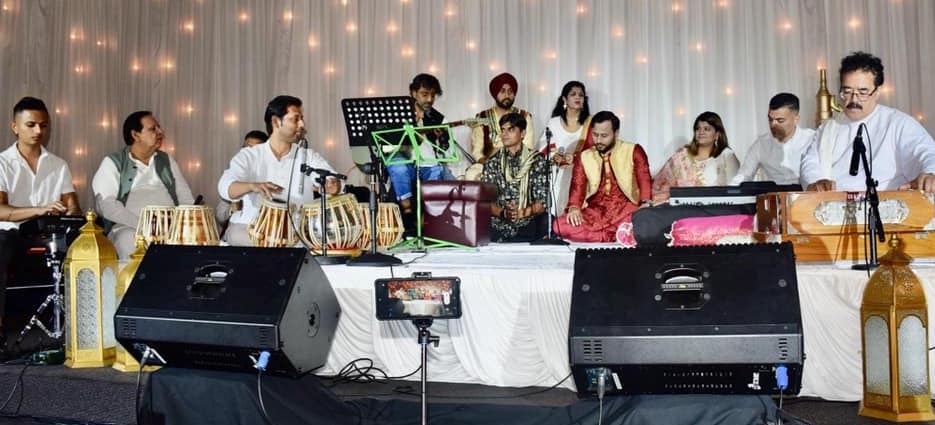
By Neena Badhwar
”˜Sufism, as the mystical dimension of Islam, preaches peace, tolerance and pluralism, while encouraging music as a way of deepening one’s relationship with the Creator.’
Sansar Sufiana on April 9 presented by SCREAN Australia (SAI Creative Arts Network) at Manjit’s Concord Function Centre turned out to be not just an ensemble of Sufi singers but a night of meet & greet something that the community really needed, to socialise and connect after the Covid lockdown relaxed a bit. It could be an occasion to dress, yet there in the foyer before the concert while being offered drinks and canape, everyone wanted to hear the call of Allah. Looking for answers to the great infliction of Corona virus. As they settled in to listen to Sufi songs in praise of Allah, Khuda, Maalik, Ali and Maula, a musical tradition that developed a style of its own in India in the form of Qawaali or Qaul where the singers while singing in chorus go themselves in kind of a trance, singing repeatedly, swaying in tandem, clapping, raising hands up above them, they are not only a sight to watch but they take the audience along with them on a high.
Once I had attended Nusrat Fateh Ali Khan concert in Granville years ago, the night and the music etched in my memory as people started dancing in an ecstatic frenzy as night progressed having been transported to a different world. Nusrat Saheb was a sight to watch with his team clapping along with him. Sufi music has picked up Meera bhajans as well I remember when the maestro rendered ”˜Sanson ki maala pe simroon main pee ka naam’. The reverberations were felt throughout the hall.

Rohit Revo, a great writer and journalist of note, was the MC as he introduced singers and musicians on stage, singers one better than the other ready to entertain with Rachana in the lead, and Heena, Lalit, Gagandeep and Raman.
Sansar Sufiana evening started with ”˜Ai Maalik tere bande hum’. Sadiq Rehmani followed it up with a soulful ”˜Dard se mera daman bhar de ya allah’, playing guitar and he looked a Sufi himself.
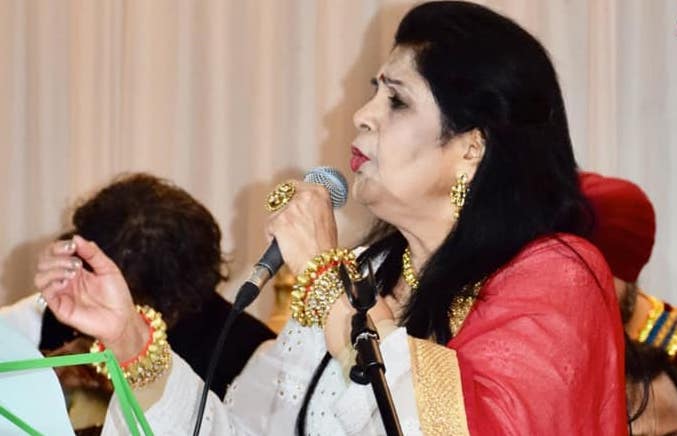
Rachana’s ”˜Pooja Karunga yaar teri pooja karunga’ was next as the mood was set for a night of soul-stirring music. Lalit Mehra, Gagandeep Singh, Raman Hiroo and yes Heena, too. Rachana’s voice is truly suited to Sufi renderings, something that creates kind of spiritual awareness in you when you listen to her. The ceaseless repetition of God’s names the purpose is to create a feeling of divine ecstasy.
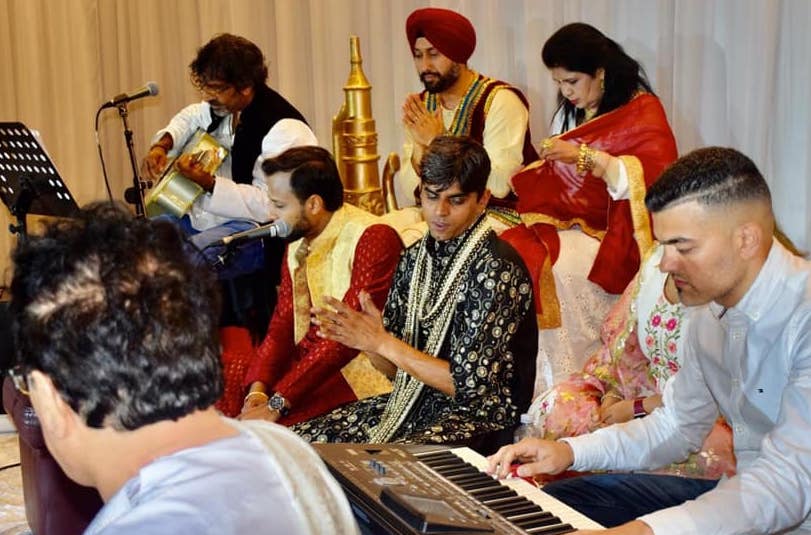
“There are many roads which lead to God. I have chosen the one of dance and music.” Persia-born Jalaluddin Rumi, the famous Sufi Muslim mystic and poet, in the 13th century had said when he would fast, meditate and then dance to reach a state of unparalleled enlightenment. The Sufi evening reached its zenith when in walked the graceful and majestic Turkish derwish of the Austolian Dance Company. He bowed to everyone and started whirling in his white flowing robe to the haunting Turkish music coupled with drums, people sat watching him in total awe.
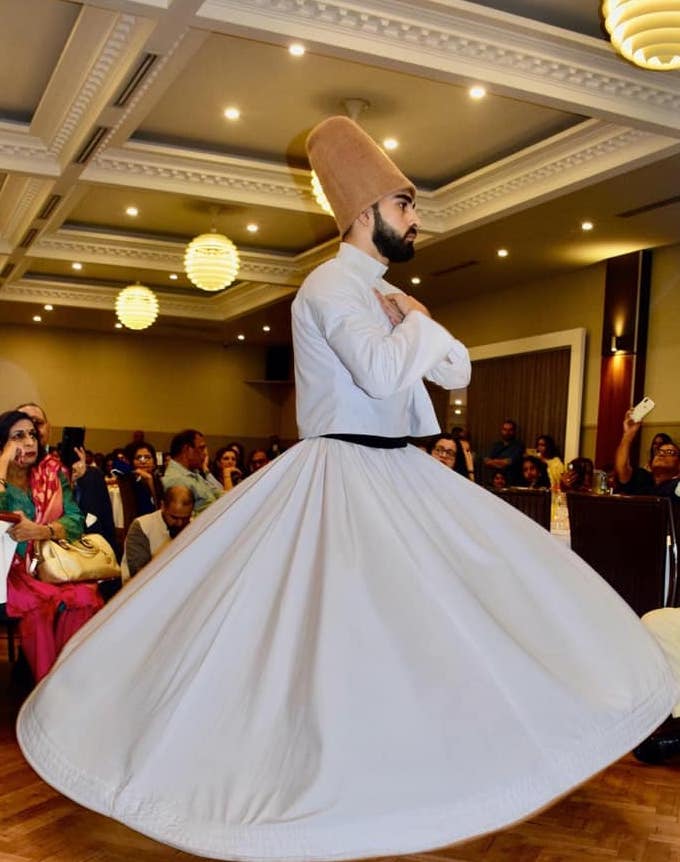
Soon the interval was announced, people tucking into food were eager more to enter back into the hall for the second half. And Singers, inspired and energised to sing more Sufi numbers.

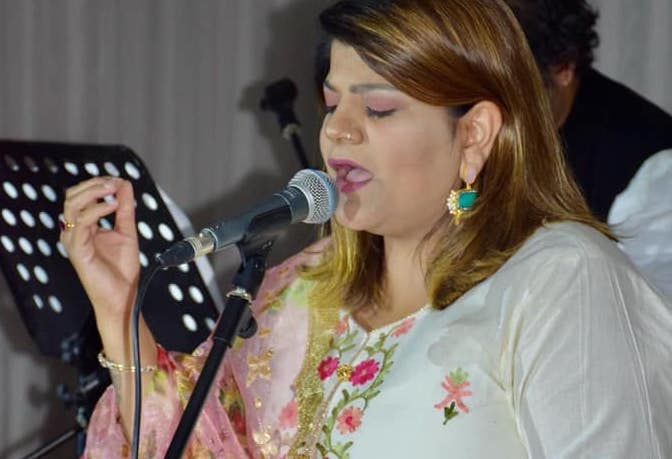
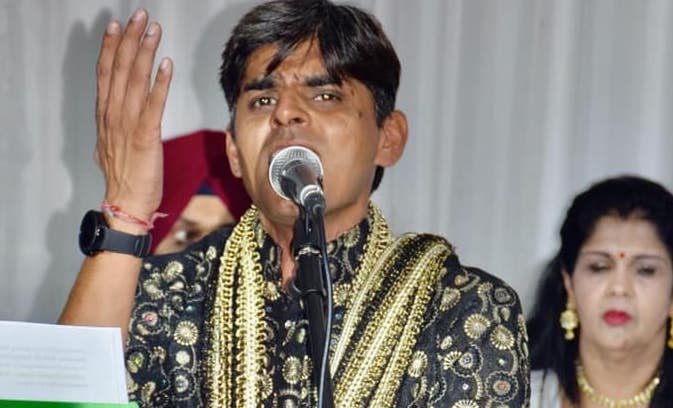
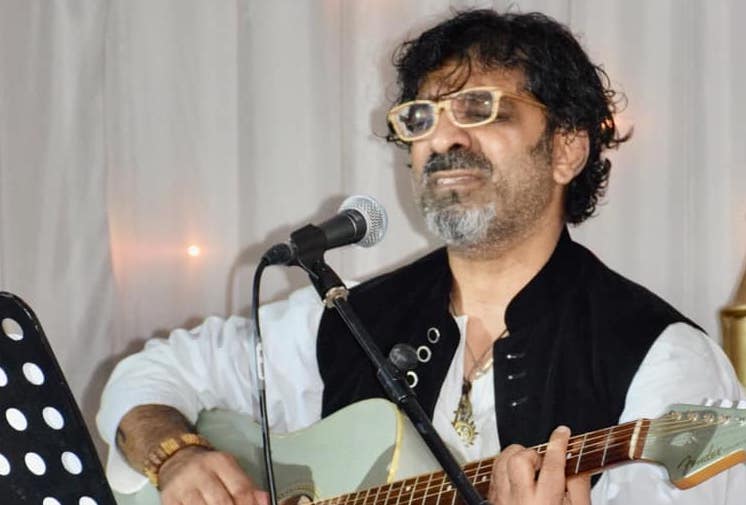

Gagandeep’s ”˜Sardarji’ that he penned and created the tune himself was an excellent entertainer. Lalit Mehra impressed with his delivery of hymns ”˜Tum meri jaan’, ”˜Sai We’ and his ”˜Rashke Qamar’ being a highlight of the evening. Young Raman Hiroo with his ”˜Naseeba’ was equally good.
These local singers have become quite confident in themselves, they not only enjoy what they sing, but egg the audience along, to join in. Rachana’s ”˜Dama Dam Mast Kalandar’, ”˜Kabir’ and ”˜Chaap Tilak Sab Chheen li re mose naina milaayike’ and Lalit’s ”˜Nazar se pilayi maza aa gaya’. Heena Sachdeva is a consummate singer, her expressions, actions, her movement, she is a sight to watch as she sat singing ”˜Ni Aj Koi Jogi Aawe’.
Sufi songs are unique to India where Islam came face to face with the Hindu thought of devotion and produced Sants such as Kabir in the 15th century when Meera, Surdas, Chaitnya Mahaprabhu of the Bhakti movement used to go into trance of their own singing devotional bhajans. While Sufi music developed in Turkey, Persia and other places with their own music styles, Indian continent produced its own greats such as Nusrat Fateh Ali Khan, Abida Parveen,Sabri Brothers and many more. The aim nevertheless being connecting the outer with one’s innerself.

Sufi Qawaali needs accompanists the team of four on the night were Aditi, Amit, Karman and Mehak Sikka Bhatnagar. Sitting on the side the quartet were asked to come in the front eventually so that we could see them. Stage space was a bit overcrowded for a sufi ensemble. Musicians in Sadiq with his guitar, Abhijit Dan on Tabla, Ali Sarshar on Keyboard, Syed Sarshar on Harmonium, with Sanjeev Raja and Parag Tijoriwala providing the rhythm effects. Abdul and Mehdi Sajwani’s sound system, please note, for front tables the music was loud and echoing which did improve in the second half once brought to notice.
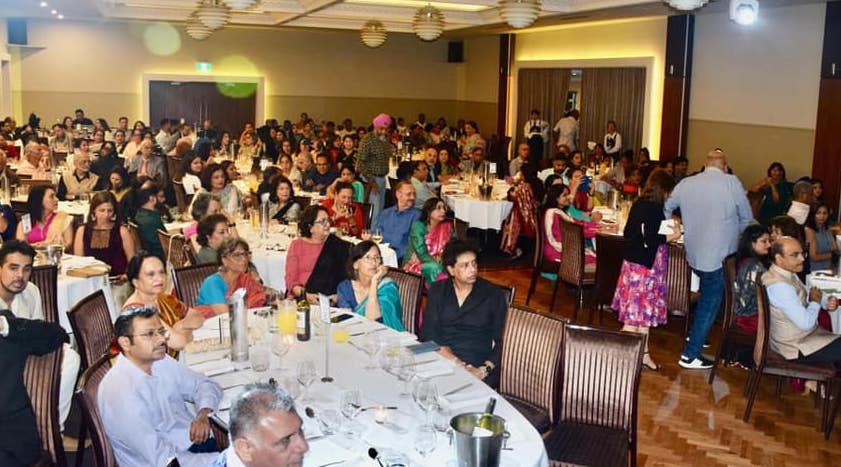
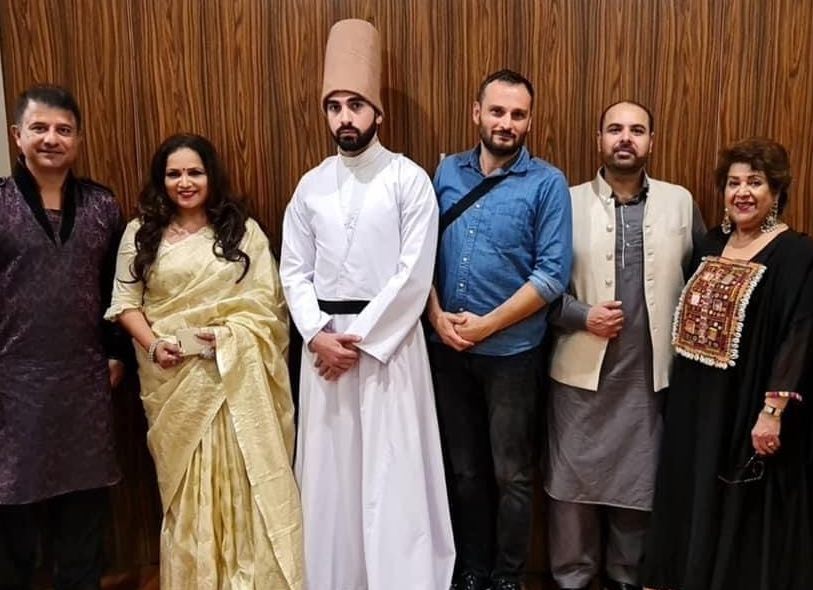


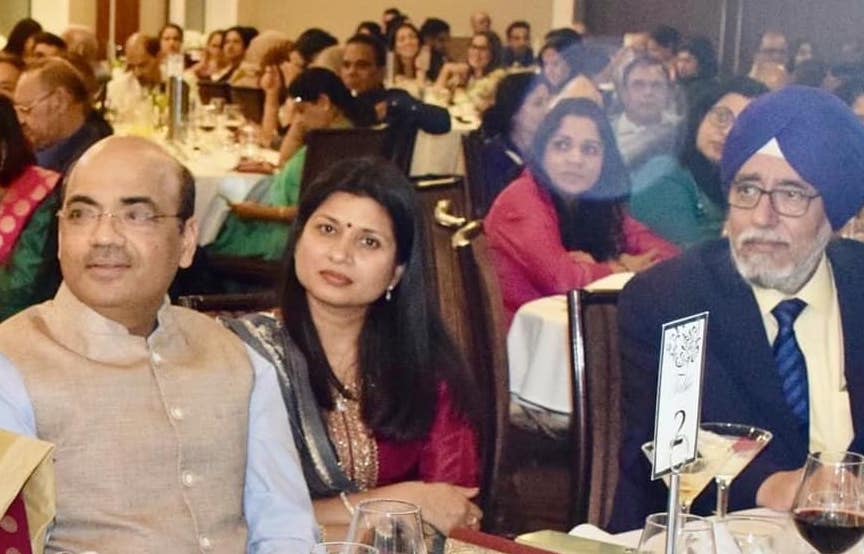
Consul General Manish Gupta was impressed with the talent and the world (”˜Sansar Sufiana’) he and his wife Nimeesha had walked in when he was asked to speak on stage, he said, “Art is there par uske qadardaan bhi hone chahiye”.
Definitely, Sydney has both: talent as well as its qadardaans.
Pics. by Harmohan Walia and Neena Badhwar
Short URL: https://indiandownunder.com.au/?p=16304
